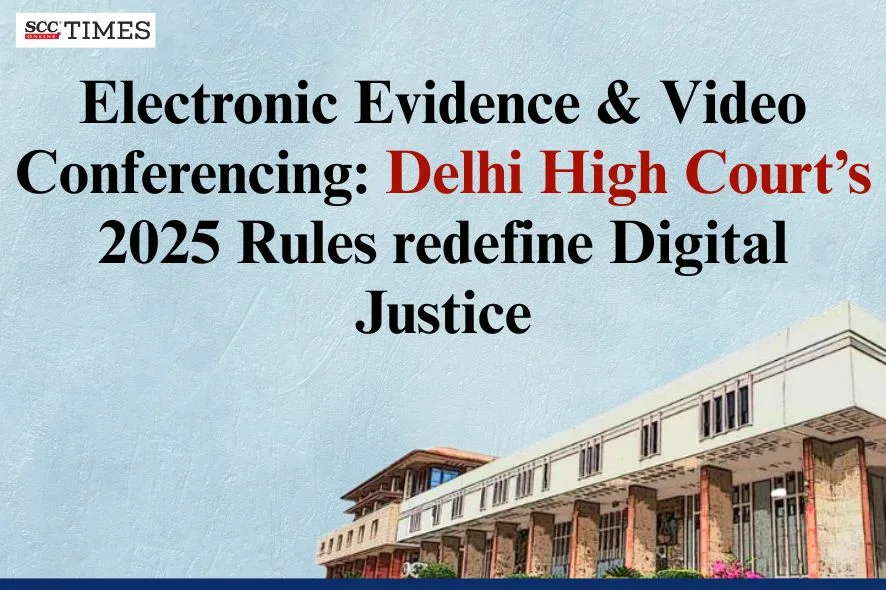On 4-7-2025, the High Court of Delhi notified the ‘Electronic Evidence and Video Conferencing Rules, 2025’ with the objective of integrating digital tools in judicial proceedings. These Rules aim to facilitate the seamless use of video conferencing technologies and the admissibility of electronic evidence, streamlining courtroom processes while upholding the sanctity, inclusiveness, and procedural fairness of judicial proceedings. These Rules came into effect on 9-7-2025.
Key Points of Electronic Evidence and Video Conferencing Rules, 2025:
- These Rules align with the broader digitization goals under the Bharatiya Nagarik Suraksha Sanhita (‘BNSS’), 2023, aiming to:
- Ensure seamless use of electronic evidence and video conferencing in court proceedings
- Legally validate electronically recorded evidence
- Expand access to justice while upholding procedural integrity and privacy
- The statutory foundation for implementing electronic evidence and video conferencing in judicial practice are based on Articles 225 and 227 of the Constitution of India, Section 7 of the Delhi High Court Act, 1966, and relevant provisions of the BNSS, 2023. This legal foundation empowers the Delhi High Court to regulate video-enabled judicial processes across its jurisdiction.
- The Rules establish that all appearances, hearings, and evidence collection via video conferencing or other audio-visual electronic means will now be considered have the same legal value as that of any physical hearings or judicial proceedings and will have full legal validity.
- The digital proceedings will be governed by the applicable statutory provisions, interpretation/ scope, and defined terminology mentioned in BNSS, the Code of Civil Procedure, 1908, the Advocates Act, 1961, the Contempt of Courts Act, 1971, the Information Technology Act, 2000, the Commercial Courts Act, 2015, and the Bharatiya Sakshya Adhiniyam, 2023.
- Delhi High Court lays down that digital judicial proceeding will be valid at all given stages. As per these Rules, when any person is appearing before Court for remote examination, court will allow its presence through approved document visualizer at the Court Point. Any unauthorized access, hacking attempts, or security breaches will be reported and addressed as per law.
- All the participants are required to officially record their presence in the courtroom. To ensure smooth operation, the coordinator at the Court Point is responsible for providing the video conferencing link to advocates and other permitted participants.
- Each proceeding held through video conferencing or similar modes of communication will be officially recorded in the court’s order sheet, affirming that such digital methods were employed.
- Technical difficulties encountered during digital proceedings will be promptly reported to the coordinator using the contact number shared prior to the hearing. This ensures quick resolution and continuity.
- In criminal trials, the advocate for the prosecution or defence will have to confirm the participant’s location, available technical setup, and proposed time slot. If an accused is in custody and not physically present, the Court can establish multi-point connections to link the witness, the accused, and the courtroom.
-
The Rules also support extended access through digital proceedings in Legal Aid Clinics, Lok Adalats, and Jail Adalats. As per Rule 23, individuals in custody can be examined remotely by Legal Services Authority officials, and orders passed in these sessions will carry the same legal force as regular proceedings.


